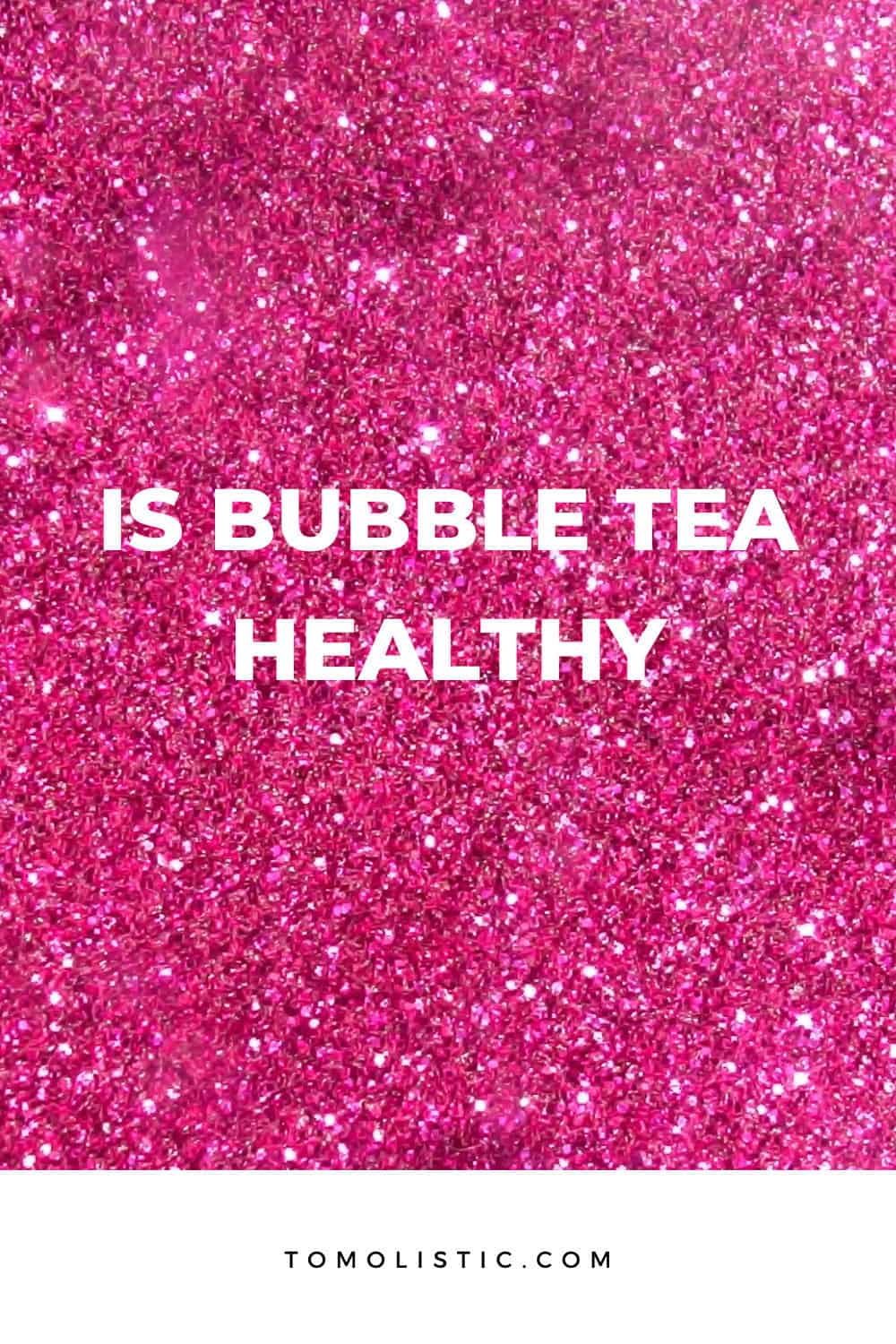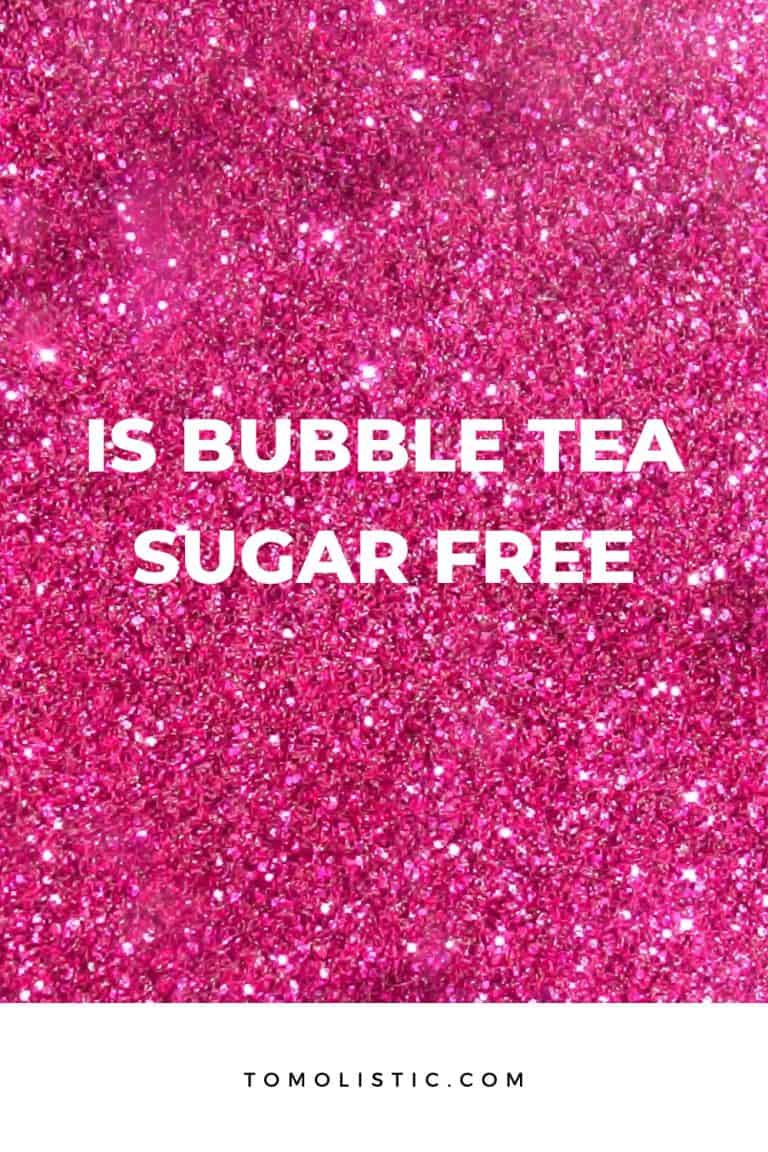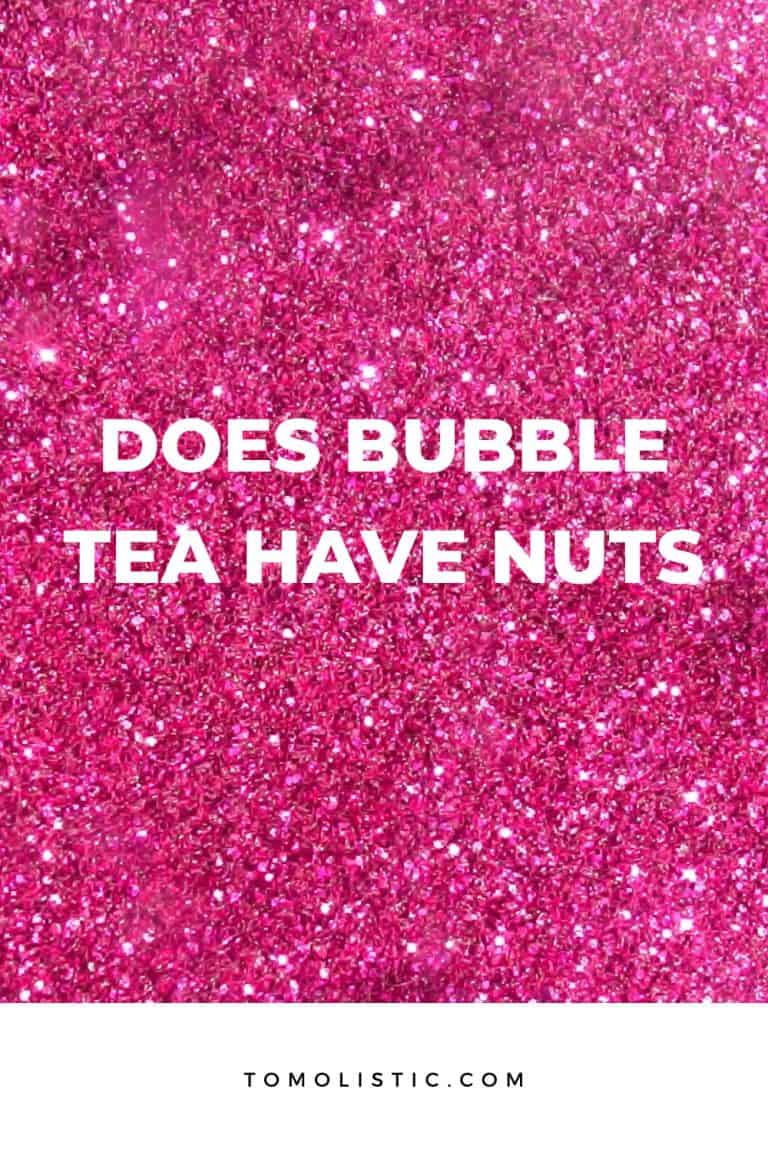Bubble Tea: A Comprehensive Guide to Its Health Impact
Is Bubble Tea Healthy? Bubble tea has taken the beverage world by storm, captivating taste buds with its unique blend of flavors and fun tapioca pearls bobbing at the bottom of the cup. It’s hard to resist the allure of this trendy drink that has become a staple in many cafes and boba shops.
With its rising popularity, questions about bubble tea’s healthiness have surfaced. Is bubble tea a guilt-free indulgence or a sugar-loaded treat in disguise? In this blog post, we will delve into the world of bubble tea to uncover the truth about its nutritional value and overall impact on health.
Are you curious about whether bubble tea aligns with your health goals? Let’s embark on this quest together to unravel the mysteries surrounding the beloved bubble tea beverage.
What is Bubble Tea?
Bubble tea, also known as boba tea, is a delightful and refreshing beverage that originated in Taiwan in the 1980s. This unique drink typically consists of a tea base, milk, sweetener, and chewy tapioca pearls, also known as boba. Let’s delve into the key components and varieties of this beloved drink.
Ingredients of Bubble Tea:
- Tea Base: The tea base can vary from classic black tea to green tea or even fruity infusions. It provides the foundational flavor of the drink and can be customized based on personal preferences.
- Milk: Milk or non-dairy alternatives like almond milk or coconut milk are often added to bubble tea to create a creamy texture and enhance the overall taste profile of the beverage.
- Sweeteners: Common sweeteners include sugar, honey, or flavored syrups. These sweet additions balance the bitterness of the tea and contribute to the overall sweetness of the drink.
- Tapioca Pearls: Tapioca pearls, the namesake “bubbles” in bubble tea, are made from cassava root starch. These chewy spheres add a fun textural element to the drink, making each sip a unique and enjoyable experience.
Varieties of Bubble Tea:
- Fruit Teas: Fruit teas combine tea with fresh fruit flavors such as passion fruit, mango, or strawberry. They are often infused with fruit syrups or real fruit chunks to create a refreshing and fruity beverage.
- Milk Teas: Milk teas incorporate creamy milk or dairy alternatives into the tea base, resulting in a smooth and velvety drink. Popular variations include classic milk tea, taro milk tea, and matcha milk tea.
- Specialty Flavors: Specialty bubble teas encompass a wide range of unique flavors and combinations. From chocolate and caramel to taro and rose, these inventive creations showcase the versatility and creativity of bubble tea makers worldwide.
Whether you prefer the traditional milk tea or enjoy exploring adventurous fruit tea blends, bubble tea offers a diverse selection to cater to every taste preference. The endless variety of ingredients and flavors in bubble tea make it a versatile and customizable beverage that continues to captivate taste buds around the globe.
Nutritional Content of Bubble Tea
Bubble tea, a beloved and trendy beverage, offers a delightful blend of flavors and textures. However, it’s essential to unravel the nutritional components of this drink to make informed decisions about its consumption. Let’s delve into the calorie, sugar, and fat content of bubble tea variants to understand their potential impact on our health.
Calories in Bubble Tea
When considering the calorie content of bubble tea, it’s crucial to acknowledge the variations based on ingredients and serving sizes. A typical bubble tea serving can range from 250 to 400 calories, depending on the additions like tapioca pearls, fruit jellies, or flavored syrups. Comparing this to the daily recommended calorie intake, which is around 2000-2500 for adults, frequent indulgence in high-calorie bubble teas may lead to exceeding daily limits. Constantly surpassing these limits may cause weight gain and disrupt overall diet balance.
Sugar Levels in Bubble Tea
One of the notable concerns with bubble tea is its sugar content. A single serving of bubble tea can contain a significant amount of sugar, sometimes exceeding 50 grams per serving. Consuming excessive sugar has been linked to various health risks, including weight gain, diabetes, and heart issues. Opting for alternatives like unsweetened or less sweetened versions, using natural sweeteners, or reducing the frequency of consumption can be healthier choices to mitigate the risks associated with high sugar intake from bubble tea.
Fat Content in Bubble Tea
The fat content in bubble tea, particularly in varieties made with milk or cream, adds another dimension to its nutritional profile. High-fat bubble teas can contribute to an increase in saturated fats, which may affect cardiovascular health and weight management. Monitoring the fat content in bubble tea becomes essential, especially for individuals focusing on maintaining a balanced diet and healthy lifestyle. Choosing lower-fat options or limiting the intake of high-fat bubble teas can be beneficial in managing overall fat consumption.
By understanding the nutritional aspects of bubble tea, including calories, sugar, and fat, consumers can make informed choices about incorporating this beverage into their diet. Awareness of the potential health concerns associated with excessive consumption of high-calorie, high-sugar, and high-fat bubble teas empowers individuals to balance their beverage choices with their overall health and wellness goals.
Health Benefits and Concerns of Bubble Tea
Bubble tea, a popular beverage known for its unique texture and flavors, has stirred up a conversation within the health community. Let’s delve into the health benefits and concerns associated with consuming this delightful drink.
Antioxidants in Bubble Tea
When sipping on bubble tea, you’re not just enjoying a tasty treat – you’re also potentially boosting your health with antioxidants. Tea-based bubble teas contain antioxidants, such as catechins and polyphenols, which can help combat oxidative stress in the body. These compounds play a vital role in promoting overall well-being by reducing inflammation and protecting cells from damage. To reap the full benefits, opt for bubble tea varieties that are rich in antioxidants, like green or black tea-based options.
Health Concerns of Bubble Tea
While bubble tea can offer antioxidant benefits, it also comes with health concerns that need to be considered. One primary issue is the high sugar content in many bubble tea recipes, which can contribute to excess calorie intake and potentially lead to weight gain or other health issues. Additionally, some ingredients like tapioca pearls may add unnecessary calories without providing significant nutritional value.
To enjoy bubble tea in a healthier way, it’s essential to practice moderation and make mindful choices. Consider opting for lower sugar or sugar-free versions, using alternative sweeteners, or reducing the portion size of your bubble tea. You can also explore options with healthier toppings, such as fresh fruits or aloe vera.
By being aware of both the benefits and concerns surrounding bubble tea consumption, you can make informed decisions that align with your health and wellness goals. Remember, balance is key when indulging in this beloved beverage.
Making Bubble Tea Healthier
Bubble tea is a delightful and popular beverage, but it can sometimes be loaded with sugar and calories. Fortunately, there are ways to make bubble tea healthier without sacrificing its delicious taste. Here are some tips and tricks to enjoy a healthier version of this beloved drink.
Healthy Bubble Tea Recipes
Creating your own healthy bubble tea at home allows you to control the ingredients and make conscious choices that align with your health goals. Here are a few nutritious bubble tea recipes using wholesome ingredients:
- Green Tea Matcha Bubble Tea: Replace sugary syrups with fresh fruits or natural sweeteners like honey or stevia. Use unsweetened almond milk or coconut milk as a dairy-free and lower calorie alternative to traditional milk.
- Fruit Infused Bubble Tea: Incorporate fresh fruit juices like mango, strawberry, or blueberry for natural sweetness. Add chia seeds for a fiber boost and a unique texture.
- Coconut Water Bubble Tea: Swap out sugary boba pearls for healthier alternatives like coconut jelly or aloe vera cubes. Coconut water provides hydration and electrolytes without added sugars.
Alternatives to Traditional Bubble Tea
If you’re looking to cut down on sugar and calories but still crave the texture and flavor of bubble tea, consider trying these alternative beverages:
- Iced Herbal Tea Infusion: Brew herbal teas like hibiscus, chamomile, or lemongrass and chill them for a refreshing drink. Add tapioca pearls or basil seeds for a bubble tea-like experience without the extra sugar.
- Smoothie Bowls: Blend frozen fruits with almond milk or yogurt to create a thick and creamy base. Top with your favorite toppings like granola, nuts, or seeds for a satisfying and nutritious treat.
- Sparkling Water Mocktails: Mix sparkling water with fruit purees or syrups for a fizzy and flavorful drink. Garnish with fresh mint leaves or citrus slices for a sophisticated twist on traditional bubble tea.
By experimenting with different ingredients and making mindful choices, you can enjoy a healthier version of bubble tea that aligns with your dietary preferences and health goals. Don’t be afraid to get creative and tailor your bubble tea experience to suit your tastes and nutritional needs.
Is Bubble Tea Healthy for You
Bubble tea, also known as boba tea, has risen in popularity across the globe, but is it a healthy drink choice? Let’s delve into the various aspects of bubble tea to determine its impact on your health.
Sugar Content
One of the primary concerns with bubble tea is its high sugar content. Many bubble tea varieties contain a significant amount of sugar, often in the form of flavored syrups or sweetened condensed milk. Consuming excessive amounts of sugar can lead to various health issues, including weight gain and an increased risk of diabetes. It’s crucial to be mindful of the sugar content in your bubble tea choice and opt for healthier alternatives with less added sugar.
Caloric Value
In addition to the sugar content, the caloric value of bubble tea can be quite high. Creamier bubble tea options that include ingredients like milk and tapioca pearls tend to have more calories. If you’re watching your calorie intake, it’s essential to consider the nutritional information of your bubble tea order. Opting for lighter versions or choosing smaller serving sizes can help manage your caloric consumption.
Caffeine Levels
Another factor to consider is the caffeine content in bubble tea. Many tea-based bubble drinks contain caffeine, which can have both positive and negative effects on your health. While moderate caffeine consumption can boost alertness and concentration, excessive intake can lead to issues like insomnia and increased heart rate. Be mindful of your caffeine sensitivity and choose bubble tea options with lower caffeine levels if needed.
Nutritional Benefits
On the flip side, bubble tea can offer some health benefits, especially if you opt for tea-based varieties. Tea is rich in antioxidants and can support overall well-being. Additionally, ingredients like fruit purees and herbal jellies in certain bubble tea options can provide vitamins and minerals. Choosing bubble teas with natural ingredients and less added sugars can enhance the nutritional value of your drink.
Moderation is Key
Like with any treat, enjoying bubble tea in moderation is key to maintaining a balanced diet. Treating yourself to a bubble tea occasionally can be a delightful experience without compromising your health goals. Be mindful of your choices, opt for healthier variations, and savor your bubble tea as an occasional indulgence rather than a daily habit. By making informed decisions and balancing your overall diet, you can enjoy bubble tea as part of a healthy lifestyle.
How Healthy Is Bubble Tea
Bubble tea, also known as boba tea, has gained immense popularity, especially among the younger generation. It’s a trendy and refreshing beverage that comes in a variety of flavors and textures. But when it comes to its health aspect, how does bubble tea measure up? Let’s dive into the details.
Nutritional Content of Bubble Tea
When looking at the nutritional content of bubble tea, it’s essential to consider its key components. Typically, bubble tea consists of tea, milk, sugar, and tapioca pearls. While tea provides antioxidants and various health benefits, the addition of milk and sugar can increase the calorie and sugar content. Tapioca pearls, often made from starch, also add to the carbohydrate count.
Calories and Sugar Levels
One of the main concerns regarding the healthiness of bubble tea is its calorie and sugar levels. Depending on the ingredients and size, a single serving of bubble tea can range from 200 to 450 calories. The sugar content can be high due to sweetened syrups, condensed milk, or flavored powders used in the drink’s preparation.
Moderation Is Key
Like many indulgent treats, enjoying bubble tea in moderation is crucial. While it may not be the healthiest beverage choice due to its sugar and calorie content, treating yourself occasionally can be a part of a balanced diet. Opting for smaller sizes, choosing healthier sweetener options, and customizing the sugar level can help make bubble tea a more figure-friendly choice.
Healthier Alternatives
For those looking to enjoy bubble tea without the guilt, there are healthier alternatives available. Some shops offer sugar-free options, reduced-fat milk choices, and even fruit-based teas with natural sweetness. By being mindful of the ingredients and customizing your drink, you can make bubble tea a lighter and more nutritious option.
Final Thoughts
In conclusion, while bubble tea may not be the healthiest beverage choice due to its calorie and sugar content, it can still be enjoyed in moderation. Being aware of the ingredients, opting for lighter alternatives, and customizing your drink can make bubble tea a more figure-friendly option. Remember, balance and moderation are key when it comes to indulging in your favorite treats.
Conclusion
In conclusion, when it comes to the question of whether bubble tea is healthy, moderation and ingredient awareness are key. While bubble tea can be a fun and tasty treat, it’s essential to make informed choices that prioritize your overall health and well-being. By being mindful of the ingredients, opting for healthier alternatives, and enjoying bubble tea in moderation, you can savor this popular beverage while maintaining a balanced lifestyle. Remember, your health is your greatest asset, so make sure to treat it with care and consideration even when indulging in your favorite bubble tea drink.


